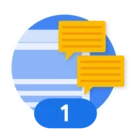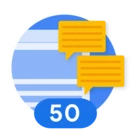I'm currently working on developing insider threat detection rules and would appreciate your insights on implementing a specific use case that involves cumulative risk scoring over time.
1. Current Rule
First, here is my current YARA-L rule. This rule detects successful Microsoft Entra ID (Azure AD) user logins occurring during non-business hours in JST (22:00 JST - 06:00 JST).
rule Sample {
meta:
description = "Sample"
severity = "MEDIUM"
events:
$e.metadata.log_type = "AZURE_AD"
$e.metadata.event_type = "USER_LOGIN"
$e.security_result.action = "ALLOW"
$ts = $e.metadata.event_timestamp.seconds
// UTC 13:00-20:59 corresponds to JST 22:00-05:59
timestamp.get_hour($ts) >= 13
timestamp.get_hour($ts) < 21
outcome:
// Currently, a fixed risk score of 50 is assigned when an event is detected.
$risk_score = 50
condition:
$e
}
2. Desired Requirement
I'd like to evolve this rule to implement the following logic for alert generation:
- Detect logins during specific hours: Triggered when a specific user logs in during a particular time slot (e.g., JST 23:00).
- (While the current rule targets JST 22:00-06:00, we can narrow this down further if needed.)
- Cumulative risk scoring based on repetition:
- Add 10 risk points for each detected login.
- This risk score should ideally be accumulated per user over a long period (e.g., days, weeks, or even months).
- Alert based on threshold:
- An alert should be triggered when a user's accumulated risk score reaches 50 points (i.e., after 5 such logins).
Example Scenario:
- Aug 1, 23:00 JST Login ⇒ Risk Score 10
- Aug 3, 23:10 JST Login ⇒ Risk Score 20
- Aug 12, 23:10 JST Login ⇒ Risk Score 30
- Aug 15, 23:20 JST Login ⇒ Risk Score 40
- Aug 20, 23:10 JST Login ⇒ Risk Score 50 ⇒ Alert Triggered
In a worst-case scenario, if explicit risk score accumulation isn't directly possible, we would still like to know if we can generate alerts based on long-term trends (e.g., "5 or more logins during JST 23:00 within the last 30 days") for a specific user.
3. Questions
Regarding the requirements above, is this achievable within Google SecOps (Chronicle SIEM)?
If achievable: Any tips on implementation or best practices would be greatly appreciated.
Thank you for your time and assistance. Any guidance would be very helpful.



